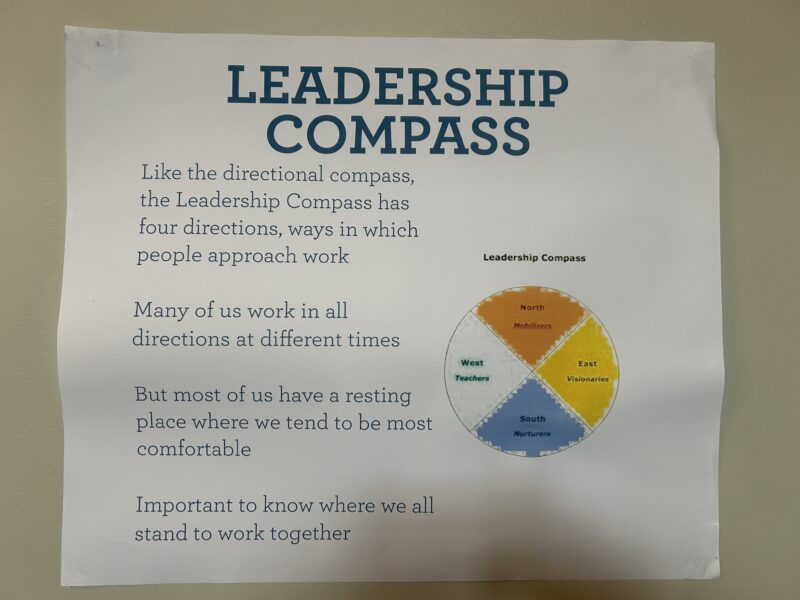Let’s talk about the End Game: A morally upright, economically sustainable 30-year-old citizen with blossoming unique potential.
While the recipe for this finished product can vary according to individuals involved, there are two ingredients, the absence of which rules out the End Game.
- Conscience
2. Brother/Sister’s Keeper.
Conscience
Driven by desire for a short cut to maintaining the “good life,” the College Admissions Scandal reflects a clear-cut mindset: College prestige matters more than personal character.
Character development defies short cuts. As a Vermont farm boy told my father when he applied to Hyde in the early days: “Even Mother Nature teaches us that you don’t get something for nothing, Mr. Gauld. Why else would she surround honey with bees and roses with thorns?”
The Hyde path to the End Game started with 5 Words:
Courage – Integrity – Leadership – Curiosity – Concern
In the late 1980s, we added Five Principles:
Destiny – Humility – Conscience – Truth – Brother’s/Sister’s Keeper
We call the Five Words the “I words” (What I need to do) and the Five Principles the “We Words” (What we need to do).
Although ten concepts can be confusing, there is no coincidence that three of these ten – Integrity, Conscience, and Truth – deal directly with truth telling. Thus, from the Get-Go, we initiate a non-stop barrage of messages and actions extolling the importance of these three qualities. We seek to develop sufficient mental muscle memory to fuel an inspiring esprit de corps, one we call “the character culture.” Signs of this barrage are everywhere:
- “Truth is our primary guide.”
- Dean’s Office maxim: “The most serious ethical violation one can commit at Hyde? Lie.”
- “The truth is both simple and easy because it has only one version.” (Laura Gauld ‘76, Head of School)
- A Hyde mantra: “When in doubt, bet on the truth. Still in doubt, bet on more truth.”
- “Honesty is when our words match our deeds. Integrity is when our deeds match our words.” – One of my constant harangues
- Sign in our Academic Wing: The truth will set you free, but first it will make you miserable.
- At the core of our Family Education program is a simple slogan: Truth over Harmony.
And on it goes. We also make it a practice to present our students with integrity-testing dilemmas like the “7-11 Dilemma.”
Indoctrination? Probably.
In any case, the attitudes Hyde students bring to the table run a gamut from “This is just like home” to “I feel like I have been forced to do everything opposite-handed” and everything in between. Regardless, our message is both uncomplicated and ceaseless: If you are honest, stay that way. If you are dishonest, give truth a try.
BK
Brother/Sister’s Keeper is generally where the rub occurs. BK seeks to create a community of people who care for each other and make it both safe and an expectation for all members in the community to take risks and pursue their personal best.
We hold an annual weekend called “Return of the Recent Grads” where young alums share their experiences with applying Hyde’s lessons to the challenges of the outside world. During a recent session, one student pointedly asked, “Do you really do Brother’s Keeper in college?”
One of the college students replied, “Definitely.” Nearly all of the other alums on stage nodded in agreement.
Clear was the stark difference in mindsets between the questioner (a new student with doubts about BK) and the “answerer” (an alum who could identify with the questioner’s doubts). The student meant, When you see kids breaking rules, do you turn them in? The alum, thinking on a deeper level (and having been knocked on his tail a time or two in college), observed that college becomes both easier and more productive with an established network of ambitious, responsible, and supportive peers. That’s BK.
Your child will not rise to the End Game standard by him- or herself. Those who get there have learned how to form inspiring alliances with others from which they benefit and to which they contribute.
Hyde students are good at forming alliances. The question: What kind of alliances? Quality alliances result in great outcomes. Bad alliances result in… well, you get the idea. And the habit of bad alliances can be a hard one to break.
Student resistance to Brother’s/Sister’s Keeper is timeless. What is new is the emergence of parental resistance on the part of some. I urge all Hyde parents to perceive BK as a training ground designed to prepare your child for the End Game. If you’re struggling with the idea, give some thought to the following 10 observations.
- BK can spawn a phenomenon that a local psychiatrist refers to as “Here, Mom/Dad, Lemme hold your coat while you fight with the school.” Kids can become pretty confused when school and home are sending different messages. Kind of like when mom and dad are not on the same page at home.
- It would be one thing if we were expelling kids and undermining their college admissions prospects by saddling them with a negative discipline history. (Note: That’s what did happen in Hyde’s earliest years when BK began in its first incarnation as “The Honor Code” and expulsion was common.) If that were the case, I might not expect students to turn their peers in to the Dean’s Office. (Hey, I wouldn’t either!)
- Character serves as our guardian against temptation and our catapult to greatness. Although BK often gets thrown in with the former, there is no greater catapult. As a student at Hyde (1968-72), I pretty much saw myself as a jock. Then, one day in art class, a couple of classmates challenged me to create a piece of art and post it publicly for all to see. This artistic challenge was way out of my comfort zone, but I accepted it and posted this very watercolor of the Hyde boiler room on the school’s public art wall.
I make no claims as to its quality, but I did indeed take the risk of putting it up for all to see. It felt good to do so. And I would not have done it without my peers pushing me. That’s also BK.
- So, if I am a Hyde student and I BK somebody, what happens to them? They go out to work for a spell – Q: Exactly, when did work get such a bad rap in America? – and then they get a restart with a clean slate. Not fun, maybe, but hardly the end of the world. (And if you really, really find work distasteful, here’s an adage for you: If you can’t do the time, don’t do the crime.)
- Although often depicted in harsh terms, it is perhaps ironic to consider that BK works at Hyde precisely because of Hyde’s unusual spirit of forgiveness.
- Traditional schools would have difficulty adopting the BK concept because they cling to an archaic policy of expulsion. (I call it the “Cops & Robbers Syndrome.”) Some schools have even been known to “look the other way” when they suspect that students may be violating behavioral standards, choosing “out of sight, out of mind” over getting down in the proverbial muck of underground student behavior. We get down in the muck.
- Given the downright scary social problems common to today’s culture, it is not enough for teachers and peers to look out separately for the best interests of young people. We need to do it together. We need synergy.
- This is not “your father’s marijuana.” Not only are edibles, vaping, dabbing, juuling, etc. incredibly easy to conceal, all of today’s options are far more potent than yesteryear’s. The science is in and it is clear: the adolescent brain should not be ingesting mind-altering substances. It’s an important battle to wage. And “cops & robbers” is a doomed strategy.
- The boarding school world has been rocked by recent media exposés concerning disturbing stories of sexual abuse by teachers and underground student-on-student sexual assaults. In each case, I have been struck by a deeply troubling common trend: Sizeable segments of the school populations have been aware of the abuse long before it became public knowledge. While no school is immune, a strong BK culture makes it very difficult for egregious, harmful, abusive behavior to continue for any sustained period of time before it is revealed to the community. Furthermore, people are far less likely to engage in negative behavior if they sense that behavior will not remain an underground secret.
- As important as clearly understood and faithfully followed reporting procedures concerning such abuses may be, we must not forget that they are curative. They occur after the fact. A healthy BK culture is preventative. It has the potential to arrest unspeakable abusive behavior before it occurs. That reason alone makes BK essential to Hyde and worthy of consideration by any school.
Truth is my primary guide.
We help others achieve their best.
Onward, Malcolm Gauld


